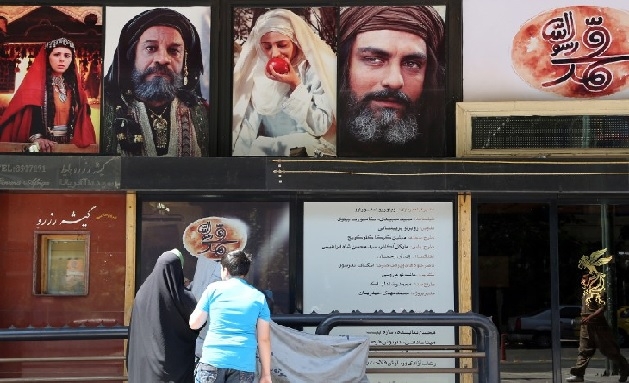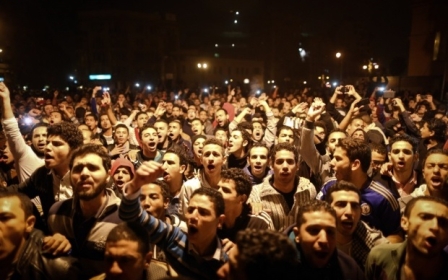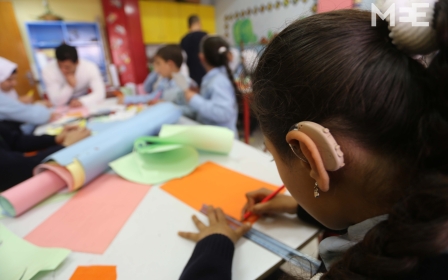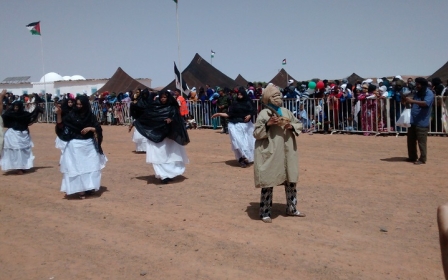Iran premieres big-budget epic film 'Muhammad'

TEHRAN - Iran's most expensive movie, Muhammad which chronicles the childhood of the Muslim prophet, opened nationwide on Thursday, winning praise from early audiences.
Directed by Majid Majidi, the 171-minute, visually spectacular film cost around $40 million, partly funded by the state, and took more than seven years to complete.
Majidi says the aim of his work, the first part of a trilogy, is to reclaim the rightful image of Islam, which he says extremists have distorted.
"Unfortunately at this time the impression of Islam is of a radical, fanatical and violent religion, which is not what it's about," he said in Montreal, where Muhammad had its international premiere, hours after screening back home.
"The barbaric acts of terrorism conducted by terrorist groups under the guise of Islam are not related to Islam," he said, alluding to beheadings and destruction of cultural treasures by Islamic State (IS) militants in Syria and Iraq.
"Islam is a religion of peace, friendship and love, and I tried to show this in the film."
Majidi, the director of internationally acclaimed films Children of Heaven (which was nominated for best foreign language Oscar in 1998) and The Colour of Paradise, is seen as a pro-establishment figure of committed religious beliefs. The Guardian reported that in 2006, Majidi refused to attend a Danish film festival in response to the ongoing row over cartoons of Muhammad, writing: “I believe in God and live with my beliefs in every single moment of my life.”
Muhammad, which captures Saudi Arabia more than 1,400 years ago, offers much more than stereotypical trains of Arabs on camels riding across yellow sand dunes.
It takes cinemagoers from the birth of the future prophet up to his teenage years, and is packed with miracles. The crew of Muhammad is indicative of the film's ambition.
It includes three-time Oscar-winning Italian cinematographer Vittorio Storaro, with a score devised by India's Allah Rakha Rahman, a double Academy Award winner for the Danny Boyle-directed blockbuster Slumdog Millionaire.
In one scene, an army of tribesmen mounted on elephants charges the holy city of Mecca to heart-pounding music, only to be destroyed by a flock of crows hurling stones.
In another, intensely emotional scene, the boy heals his nanny with a touch of his hand.
"It was very moving for us," said Mahsa Rasoulzadeh, 40, accompanied by her mother and teenage daughter at Kourosh Cinema in west Tehran.
Strong demand in Tehran
The theatre was around two-thirds full at an 11am showing on Thursday, the first day of the Iranian weekend, but afternoon sessions were sold out in advance and two more had to be added for after midnight to meet demand.
Abolfazl Fatehi, 21, who came to watch the film in a family group of seven, said he loved it.
"I think this film can be a starting point of research for those who don't know Islam," he said.
Mehdi Azar, a 25-year-old worker at the cinema, said, "It's a long movie and that might seem a turn-off at first, but it's attractive enough to draw an audience. It was very attractive visually."
The film is the second major production on the prophet.
The first, Muhammad, Messenger of God, was made in 1976 by Syrian-American filmmaker Moustapha Akkad.
It was a huge success with Shiite Iranians.
Forty years on, with its cost around 20 times higher than any other Iran-produced film, Majidi's effort has raised high expectations.
Despite broad early enthusiasm some felt the movie had not lived up to the hype.
"I had heard so much about it ... but, to be honest, my expectations were much higher than what I saw," said Komeil Arjmandi, 23, who is studying film direction.
"I wanted the film to rise higher than Mr Akkad's movie."
Yet officials don't want the film to be compared with others.
In order to "preserve the dignity" of the prophet, Muhammad was excluded from competition in Iran's major Fajr festival in February and was instead showcased in a separate showing.
While Iran has denounced cartoons of the prophet like those published by French satirical magazine Charlie Hebdo, Shias are generally more relaxed than Sunnis about depiction of religious figures.
Many showings of Muhammad in Shiite-majority Iran have already sold out, but the film has triggered controversy in the Sunni world.
In 2012, the Islamic Research Academy a powerful institution associated with Egypt’s al-Azhar Mosque and University issued a statement, calling for the film to remain unreleased, “so that an undistorted image of the Prophet can be preserved in the minds of Muslims”.
No announcement has yet been made on when the two other parts of the "Muhammad" trilogy, covering the rest of the Prophet's life, will be produced.
New MEE newsletter: Jerusalem Dispatch
Sign up to get the latest insights and analysis on Israel-Palestine, alongside Turkey Unpacked and other MEE newsletters
Middle East Eye delivers independent and unrivalled coverage and analysis of the Middle East, North Africa and beyond. To learn more about republishing this content and the associated fees, please fill out this form. More about MEE can be found here.




